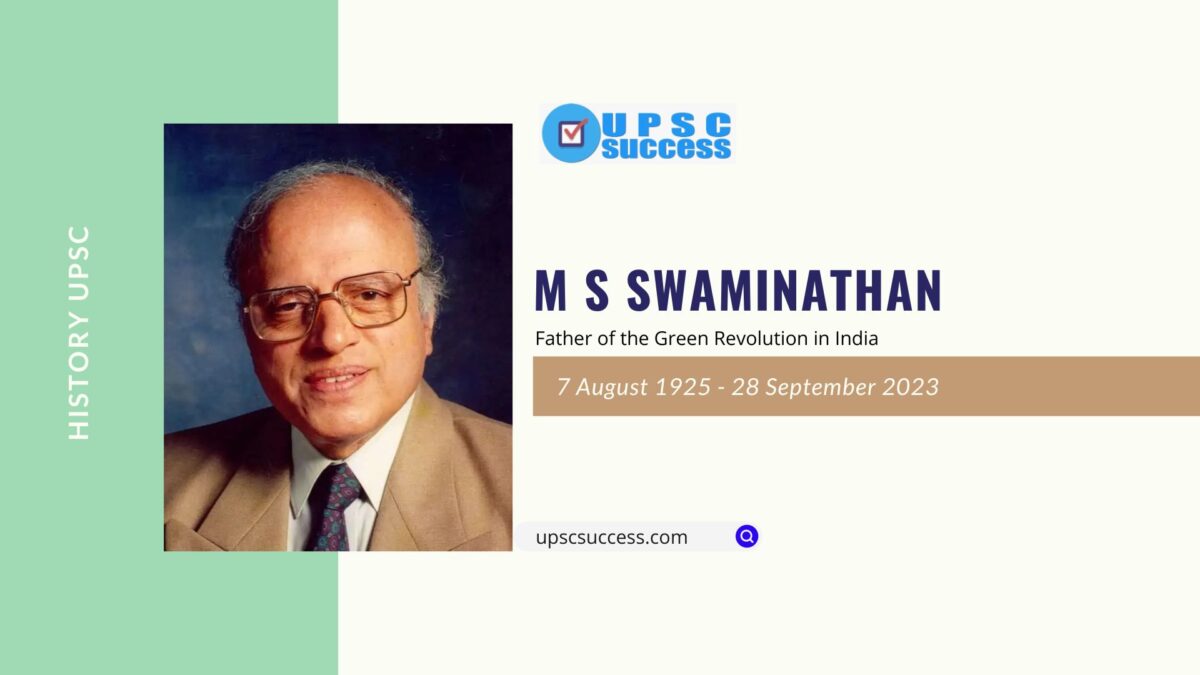Contents
M.S. Swaminathan, a prominent Indian agricultural scientist, made groundbreaking contributions to revolutionize agriculture in India, earning him the prestigious Bharat Ratna in 2024.
Mankombu Sambasivan Swaminathan, born on August 7, 1925, in Kumbakonam, Tamil Nadu, India, is widely regarded as the “Father of the Green Revolution” in India. His early life experiences, coupled with his passion for agricultural development, laid the foundation for his remarkable journey in transforming India’s agricultural landscape.
The Green Revolution in India
The Green Revolution, initiated in the mid-20th century, aimed to increase agricultural productivity through the adoption of high-yielding crop varieties, modern farming techniques, and improved irrigation methods. This movement played a pivotal role in addressing food scarcity and bolstering food security in India.
Impact on agriculture
The introduction of high-yielding varieties of crops such as wheat and rice led to significant improvements in crop yields, thereby enhancing food production and reducing dependency on imports.
Contributions to food security
By increasing agricultural productivity, the Green Revolution played a crucial role in ensuring food security for India’s growing population, alleviating hunger, and laying the groundwork for economic development.
M.S. Swaminathan’s role in the Green Revolution
Background and education
M.S. Swaminathan’s academic journey commenced at the prestigious Indian Agricultural Research Institute (IARI) in New Delhi, where he earned his Bachelor’s and Master’s degrees in agriculture. Subsequently, he pursued doctoral studies at the University of Cambridge, specializing in genetics and plant breeding.
Research and innovations
Armed with his extensive knowledge and expertise, Swaminathan embarked on a career dedicated to agricultural research and development. His pioneering work in crop improvement, particularly in the field of wheat genetics, revolutionized farming practices and contributed significantly to increasing crop yields.
Achievements and awards
M.S. Swaminathan’s tireless efforts and groundbreaking contributions have garnered widespread recognition and accolades. In 2024, he was conferred with the Bharat Ratna, India’s highest civilian award, in recognition of his extraordinary contributions to agriculture and rural development.
Legacy and influence
Continued work and advocacy
Despite his numerous achievements, M.S. Swaminathan remains actively involved in agricultural research, advocating for sustainable farming practices, environmental conservation, and rural development. His continued commitment to addressing global food security challenges underscores his enduring legacy.
Global recognition
Beyond India, Swaminathan’s influence extends globally, with his expertise sought after by international organizations and governments seeking solutions to agricultural challenges. His visionary leadership continues to inspire future generations of scientists and policymakers worldwide.

